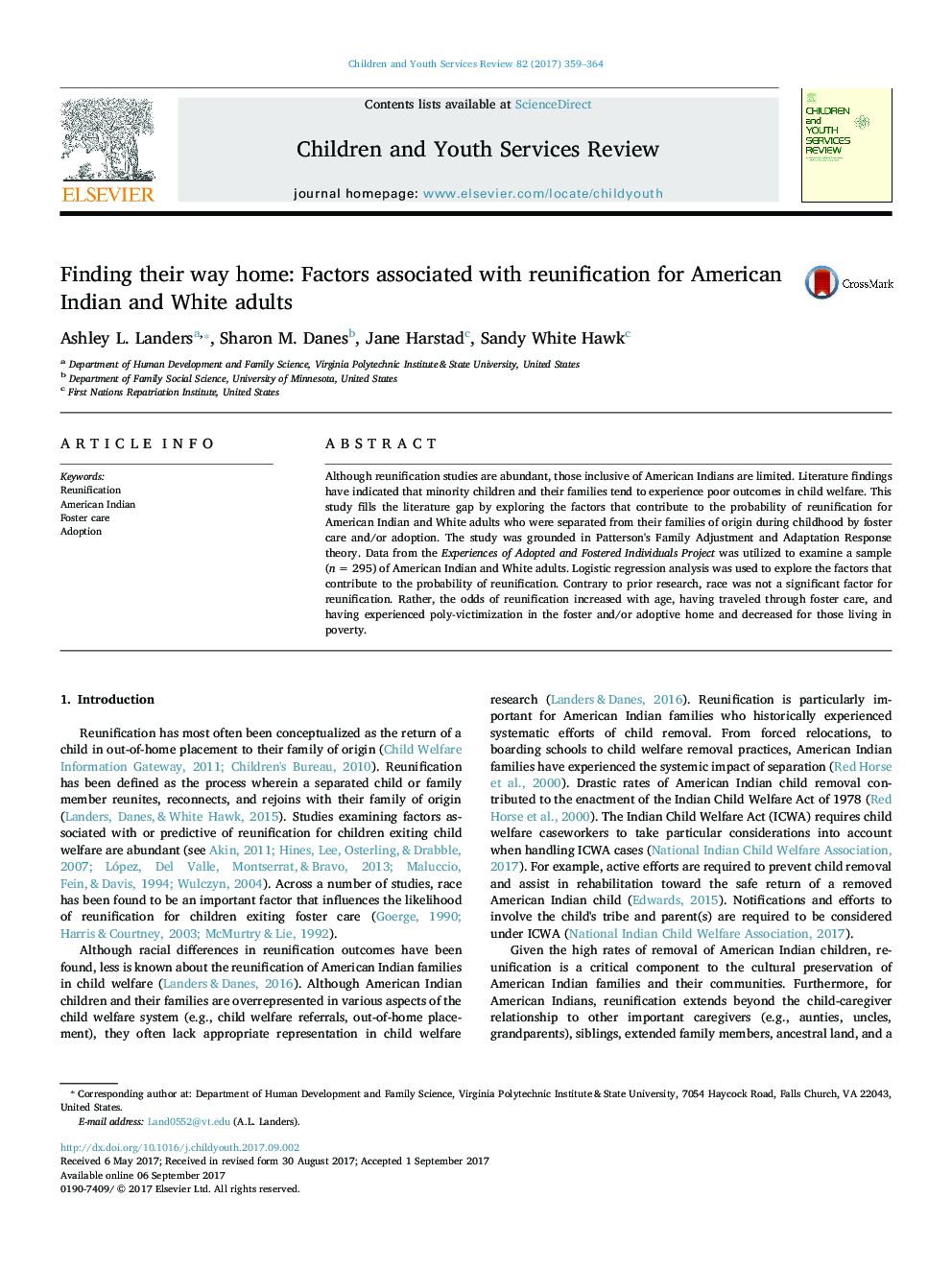| Article ID | Journal | Published Year | Pages | File Type |
|---|---|---|---|---|
| 4936203 | Children and Youth Services Review | 2017 | 6 Pages |
Abstract
Although reunification studies are abundant, those inclusive of American Indians are limited. Literature findings have indicated that minority children and their families tend to experience poor outcomes in child welfare. This study fills the literature gap by exploring the factors that contribute to the probability of reunification for American Indian and White adults who were separated from their families of origin during childhood by foster care and/or adoption. The study was grounded in Patterson's Family Adjustment and Adaptation Response theory. Data from the Experiences of Adopted and Fostered Individuals Project was utilized to examine a sample (n = 295) of American Indian and White adults. Logistic regression analysis was used to explore the factors that contribute to the probability of reunification. Contrary to prior research, race was not a significant factor for reunification. Rather, the odds of reunification increased with age, having traveled through foster care, and having experienced poly-victimization in the foster and/or adoptive home and decreased for those living in poverty.
Related Topics
Health Sciences
Medicine and Dentistry
Perinatology, Pediatrics and Child Health
Authors
Ashley L. Landers, Sharon M. Danes, Jane Harstad, Sandy White Hawk,
